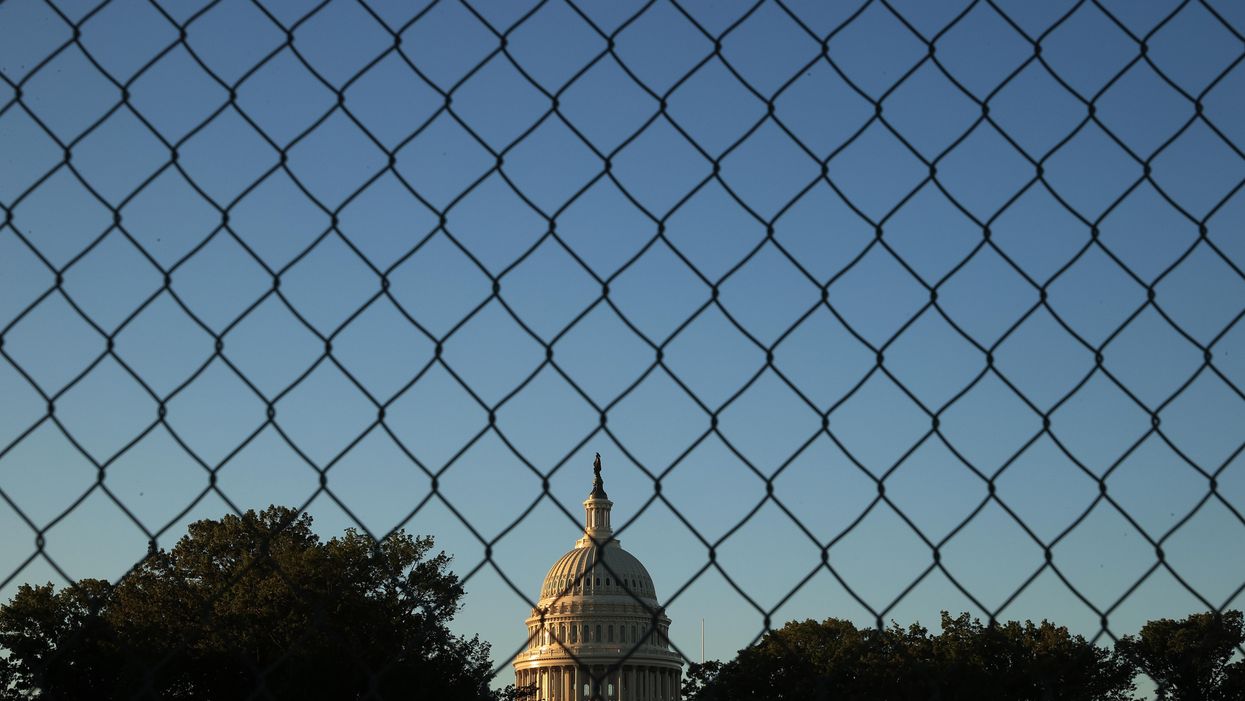The federal government will narrowly avoid another shutdown as Congress plans to approve funding for agencies and operations through early December.
Congressional leaders came together on a band-aid solution just hours before the end of the fiscal year Thursday night, as spending was set to expire. Because Congress only agreed to a temporary solution, lawmakers will have to address it all over again in 65 days.
And there's scant time to start on a long-term spending solution because there's no shortage of other pressing issues on Capitol Hill: Lawmakers will need to raise or suspend the country's debt ceiling by mid-October. Democrats are trying to cobble together enough votes to pass a massive bipartisan infrastructure bill and a separate economic package, two of Biden's top priorities. And major voting rights and election reform legislation also lies in wait.
Partisan disputes in Congress kept lawmakers from reaching a solution earlier. Leaders of both parties said they wanted to avoid a government shutdown, but disagreed on how to do so. Democrats tried to pass a measure earlier this week that both funded the government and suspended the debt ceiling, but Senate Republicans blocked the effort.
Minority Leader Mitch McConnell has said if Democrats want to raise the debt ceiling, they'll have to do it on their own. By forcing the issue to a party-line vote, Republicans hope to use the higher debt ceiling as evidence of out-of-control Democratic spending during the midterm elections — even though a significant portion of the debt accrued came from spending and tax breaks approved by the GOP during the Trump administration.
Thursday's vote on a stopgap spending bill will provide interim funding for the government and keep critical services running during the Covid-19 pandemic. Before it spending expires Dec. 3, lawmakers will need to either approve another short-term solution, known as a continuing resolution, or approve appropriations to fund the government through the end of 2022.
Close calls like this and actual government shutdowns have become increasingly common over the years. In the last decade, there have been three government shutdowns, including a 34-day closure in 2019, the longest one in American history. Since the current budget process was introduced in the 1970s, there have been 20 funding gaps — four of which have resulted in shutdowns lasting more than one business day.
The last time Congress approved federal appropriations before the fiscal year ended, with no need for continuing resolutions, was 1997, according to the Committee for a Responsible Federal Budget.
Because Congress is so polarized, it's tough for legislation to garner the 60 votes needed to overcome a filibuster in the Senate. This hurdle is especially difficult "when you're talking about things in the budget process where Congress first has to agree on big, top-line numbers for how much they want to spend across the board and then they actually have to proceed to the hard work of dividing up the pie," said Molly Reynolds, a senior fellow in governance studies at the Brookings Institution.
Appropriations measures also become popular targets for other, unrelated issues because of their "must pass" status, which can ramp up the drama. These combined challenges are why Congress finds itself flirting with shutdowns so often, Reynolds said.
To make the federal budget process more functional, Reynolds said, Congress should develop the appropriations bills individually in their respective subcommittees and bring them to the floor in "minibus," or smaller, packages rather than omnibus packages that put all the appropriations bills together.
"In 2018, we had both the start of a record-long government shutdown and also, earlier in 2018, we had Congress's most productive appropriations year in several decades. Part of what made that happen was this minibus strategy," Reynolds said.
The minibus strategy allowed some of the appropriations bills to pass that year, keeping significant parts of the government funded, even though other parts shut down.
"We don't live in the political world that we lived in when Congress wrote the Congressional Budget Act of 1974," Reynolds said, adding that lawmakers should try to figure out "what are the things about the 1974 process that we think are valuable and that we can keep, and then how do we adapt other parts of the process to recognize the [current] political realities."
While Congress has skirted another government shutdown for now, the debt ceiling deadline still looms. If the debt limit isn't raised or suspended by Oct. 18, according to Treasury Secretary Janet Yellen, the U.S. won't be able to pay its bills and the country could default for the first time ever. Because so many countries rely on the U.S. economy, such an outcome would have dire and unpredictable repercussions around the globe.
Democrats could raise the debt ceiling on their own through a process called reconciliation, which only requires a simple majority to pass in the Senate, rather than the usual 60 needed to overcome a filibuster. However, Majority Leader Chuck Schumer has refused to resort to reconciliation, calling it "risky" and "uncharted waters."
The reconciliation process can only be used once per fiscal year and Democrats are already considering using it to pass their $3.5 trillion domestic policy package. However, the fate of that legislation and the $1 trillion infrastructure bill remains uncertain as the Democratic party is divided over how much money to spend on what programs.
And amid the drama over the federal budget and infrastructure package, two landmark election reform bills have taken a backseat, despite voting rights advocates' urgent calls for passage. The Freedom to Vote Act was introduced earlier this month as a compromise version of the For the People Act. Both the Freedom to Vote Act and the John Lewis Voting Rights Advancement Act face long odds in the Senate if the filibuster remains intact.




















